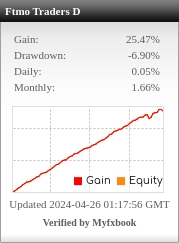
Introduction
Proprietary trading firms play a significant role in the world of finance, yet their operations often remain shrouded in mystery to those outside the industry. Understanding proprietary trading firms is essential for anyone aspiring to enter the financial markets or seeking to comprehend how these entities function. This comprehensive guide provides an in-depth exploration of proprietary trading firms, their operations, and their impact on the financial markets.
What Are Proprietary Trading Firms?
Definition of Proprietary Trading Firms
Proprietary trading firms, commonly referred to as "prop shops," are specialized financial institutions that trade assets, including stocks, bonds, commodities, currencies, and derivatives, using the firm’s own capital. Unlike traditional investment firms that trade on behalf of clients, prop trading firms engage in trading activities solely for their own profit.
How Proprietary Trading Firms Operate
The core principle behind proprietary trading is leveraging the firm’s capital to generate profits. This is achieved through a variety of trading strategies, including:
- High-Frequency Trading (HFT): Utilizing cutting-edge technology to execute trades at extraordinary speeds.
- Market Making: Providing liquidity to the markets by placing buy and sell orders.
- Statistical Arbitrage: Exploiting price discrepancies between related financial instruments.
Key Features of Proprietary Trading Firms
Risk Management
Effective risk management is paramount in proprietary trading. Firms employ sophisticated algorithms and risk assessment tools to monitor positions and mitigate potential losses. The ability to manage and control risk determines the firm’s longevity and success.
Technology and Infrastructure
Proprietary trading firms heavily invest in state-of-the-art technology and infrastructure. High-speed trading platforms, direct market access, and advanced data analytics are crucial components that give these firms a competitive edge.
Financial Incentives
Proprietary trading firms often offer unique financial incentives to their traders:
- Profit Sharing: Traders typically receive a percentage of the profits they generate.
- Performance Bonuses: Additional compensation based on individual or team performance.
- Equity Stakes: Some firms offer traders ownership stakes.
Types of Proprietary Trading Strategies
Momentum Trading
Momentum trading involves capitalizing on market trends and price movements. Traders identify and ride the trend until it shows signs of reversing, maximizing profits from sustained market momentum.
Arbitrage
Arbitrage strategies exploit price differentials in different markets. By simultaneously buying and selling correlated assets, traders can profit from small price discrepancies, ensuring a low-risk approach to generating returns.
Quantitative Trading
Quantitative trading relies on mathematical models and algorithms to make trading decisions. These strategies are data-driven and often involve complex statistical analyses to predict market movements.
Advantages and Disadvantages of Proprietary Trading Firms
Advantages
- Potential for High Returns: Successful traders can achieve substantial profits.
- Access to Capital: Traders have access to significant amounts of capital, enabling larger trades and the ability to capture more significant opportunities.
- Learning Opportunity: Immersive trading environment offers invaluable learning experiences and growth for traders.
Disadvantages
- High Risk: The potential for significant financial loss is inherent to proprietary trading.
- Pressure and Stress: The high-stakes nature of the job can be stressful and demanding.
- Competitive Environment: The industry is highly competitive, with only a small percentage of traders achieving sustained success.
Regulatory Environment
Regulatory Bodies
Proprietary trading firms operate under the scrutiny of financial regulators. In the United States, the Securities and Exchange Commission (SEC) and the Commodity Futures Trading Commission (CFTC) are primary regulatory bodies overseeing these firms’ activities.
Compliance Requirements
Adhering to regulatory requirements is crucial. Proprietary trading firms must ensure transparency, maintain adequate capital reserves, and implement robust compliance programs to prevent market manipulation and insider trading.
The Role of Proprietary Trading Firms in the Financial Markets
Market Liquidity
Proprietary trading firms contribute significantly to market liquidity. By providing continuous buy and sell orders, they ensure smoother price discovery and reduce bid-ask spreads.
Market Efficiency
Proprietary trading firms enhance market efficiency by exploiting arbitrage opportunities and correcting mispricings. Their active participation in the markets helps maintain fair pricing and reduces volatility.
Conclusion
Proprietary trading firms are pivotal entities in the financial markets, driving liquidity, efficiency, and innovation. Understanding their operations, strategies, and impact elucidates their vital role in the financial ecosystem. While the potential for high rewards exists, so do the associated risks and challenges. Aspiring traders and financial professionals must weigh these factors carefully as they consider engaging in proprietary trading.
By leveraging cutting-edge technology, employing rigorous risk management practices, and maintaining compliance with regulatory standards, proprietary trading firms continue to shape the future of financial markets.




